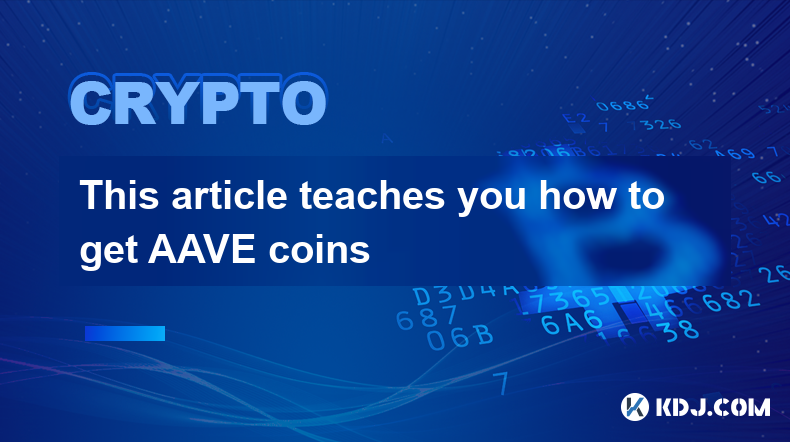-
 Bitcoin
Bitcoin $94,900.9610
0.08% -
 Ethereum
Ethereum $1,777.0522
-2.62% -
 Tether USDt
Tether USDt $0.9999
0.00% -
 XRP
XRP $2.1353
-1.04% -
 BNB
BNB $599.6998
0.09% -
 Solana
Solana $144.5163
-1.58% -
 USDC
USDC $1.0000
0.00% -
 Dogecoin
Dogecoin $0.1685
-2.23% -
 Cardano
Cardano $0.6599
-1.68% -
 TRON
TRON $0.2452
-1.51% -
 Sui
Sui $3.2341
-6.31% -
 Chainlink
Chainlink $13.5500
-1.68% -
 Avalanche
Avalanche $19.7510
-0.28% -
 UNUS SED LEO
UNUS SED LEO $8.7109
0.58% -
 Stellar
Stellar $0.2568
-2.44% -
 Toncoin
Toncoin $3.0243
0.83% -
 Shiba Inu
Shiba Inu $0.0...01256
-2.30% -
 Hedera
Hedera $0.1739
-1.48% -
 Bitcoin Cash
Bitcoin Cash $357.5985
0.37% -
 Hyperliquid
Hyperliquid $20.5224
0.72% -
 Litecoin
Litecoin $83.5744
-4.09% -
 Polkadot
Polkadot $3.9325
-1.11% -
 Dai
Dai $1.0001
0.00% -
 Monero
Monero $286.0631
2.72% -
 Bitget Token
Bitget Token $4.2942
-0.25% -
 Ethena USDe
Ethena USDe $1.0003
0.00% -
 Pi
Pi $0.5789
-2.25% -
 Pepe
Pepe $0.0...07851
-2.10% -
 Bittensor
Bittensor $364.8449
-2.86% -
 Uniswap
Uniswap $4.8840
-2.52%
This article teaches you how to get AAVE coins
Acquiring AAVE tokens involves registering on reputable cryptocurrency exchanges, purchasing AAVE with fiat currency, and transferring the tokens to a secure crypto wallet for storage.
Jan 01, 2025 at 12:25 am

A Comprehensive Guide to Acquiring AAVE Tokens
This meticulously crafted guide empowers you with the knowledge and strategies to seamlessly acquire AAVE tokens, providing a comprehensive understanding of the cryptocurrency ecosystem.
Key Points
- Understand the significance and utility of AAVE tokens
- Explore various methods of obtaining AAVE, including exchanges, DeFi platforms, and staking
- Delve into the decentralized lending and borrowing landscape, including risks and potential rewards
- Identify the benefits and considerations of holding AAVE tokens
Step-by-Step Instructions
1. Register on a Cryptocurrency Exchange
- Register on reputable platforms like Coinbase, Binance, or Gemini
- Complete the identity verification process to ensure compliance and security
2. Purchase AAVE with Fiat Currency
- Fund your exchange account via bank transfer, credit/debit card, or other payment options
- Navigate to the AAVE trading pair (e.g., AAVE/USD) and place a buy order
3. Transfer AAVE to a Wallet
- Create a compatible crypto wallet, such as MetaMask, TrustWallet, or Ledger
- Copy your wallet address and transfer the purchased AAVE to it for secure storage
4. Interact with DeFi Platforms
- Explore decentralized finance (DeFi) platforms like Aave or Compound
- Deposit your AAVE into liquidity pools to earn interest as a lender
- Borrow other cryptocurrencies using AAVE as collateral, subject to platform terms and conditions
5. Stake AAVE for Rewards
- Stake your AAVE on specialized platforms or protocols
- Receive rewards in the form of additional AAVE tokens by supporting the network's security and functionality
6. Participate in AAVE Governance
- Hold AAVE tokens to vote on protocol upgrades and key decisions shaping the project's future
- Shape the direction of the Aave ecosystem through active participation
7. Benefits and Considerations of Holding AAVE
Benefits:
- Passive income through lending and staking: Earn interest rewards by contributing your AAVE to DeFi platforms
- Governance rights: Participate in decision-making processes that shape the protocol's future
- Collateralization: Use AAVE as collateral to borrow other cryptocurrencies
Considerations:
- Market volatility: AAVE price fluctuations can impact the value of your investment
- Smart contract risks: DeFi platforms are susceptible to smart contract vulnerabilities, which could lead to potential loss of funds
- Borrowing risks: Carefully assess the terms and conditions of borrowing on DeFi platforms to avoid excessive risk
FAQs
What is AAVE?
AAVE is a decentralized lending and borrowing protocol that facilitates peer-to-peer lending without intermediaries. Holders of AAVE tokens can participate in lending markets, borrow cryptocurrencies, and contribute to the protocol's governance.
What is the utility of AAVE tokens?
AAVE tokens serve multiple purposes, including:
- Governance: Voting on protocol upgrades and key ecosystem decisions
- Earning interest: Staking AAVE on DeFi platforms or in dedicated liquidity pools
- Collateral: Utilizing AAVE as collateral when borrowing other cryptocurrencies on DeFi platforms
How can I store AAVE tokens?
AAVE tokens can be stored in compatible cryptocurrency wallets, including both hardware and software options:
- Hardware wallets: Store AAVE tokens offline for enhanced security, such as Ledger or Trezor
- Software wallets: Provide convenient access and management of AAVE tokens, such as MetaMask or TrustWallet
What are the risks associated with holding AAVE tokens?
- Market volatility: The value of AAVE tokens can fluctuate significantly in response to market conditions
- Smart contract risks: DeFi protocols, including Aave, are built on smart contracts, which carry inherent risks of vulnerability
- Borrowing risks: Using AAVE as collateral to borrow other cryptocurrencies exposes holders to market risks and potential loan defaults
Disclaimer:info@kdj.com
The information provided is not trading advice. kdj.com does not assume any responsibility for any investments made based on the information provided in this article. Cryptocurrencies are highly volatile and it is highly recommended that you invest with caution after thorough research!
If you believe that the content used on this website infringes your copyright, please contact us immediately (info@kdj.com) and we will delete it promptly.
- Can $1,500 Flip into over $13,500 in Just a Few Weeks?
- 2025-05-07 02:35:12
- BTFD Coin (BTFD): The Next Big Meme Coin Explosion Could Be Right Under Your Nose
- 2025-05-07 02:35:12
- A small group of crypto traders made nearly $100 million
- 2025-05-07 02:30:12
- Maxine Waters Objects Crypto Market Structure Bill
- 2025-05-07 02:30:12
- While top-tier cryptocurrencies dominate headlines, a quiet contender like Render (RNDR) is gaining traction among savvy investors.
- 2025-05-07 02:25:12
- With 2025 Setting the Stage for Massive Crypto Expansion, Investors Are Scanning the Market for the Top Gainers
- 2025-05-07 02:25:12
Related knowledge

BSV transaction fees suddenly increased? How to adjust the handling fee to save costs?
May 02,2025 at 06:42am
Understanding BSV Transaction FeesBSV (Bitcoin SV) aims to fulfill the original vision of Bitcoin as a peer-to-peer electronic cash system. One of the key elements in this system is the transaction fee, which compensates miners for including transactions in the blockchain. Recently, users have noticed a sudden increase in BSV transaction fees, which can...

Does BSV transaction require real-name authentication? Is anonymous trading feasible?
May 03,2025 at 03:14pm
The question of whether BSV (Bitcoin SV) transactions require real-name authentication and whether anonymous trading is feasible is a complex one, deeply intertwined with the broader dynamics of cryptocurrency regulations and blockchain technology. Let's delve into these aspects to provide a comprehensive understanding. Understanding BSV and Its Transac...

How to solve the high slippage of BSV transactions? How to choose between limit and market orders?
May 02,2025 at 09:01pm
High slippage can be a significant concern for traders dealing with Bitcoin SV (BSV) transactions. Slippage refers to the difference between the expected price of a trade and the price at which the trade is actually executed. This can occur in fast-moving markets or when there is low liquidity. To address this issue, understanding the mechanics of slipp...

What if BSV transactions are frozen? How to contact customer service to unblock the account?
May 05,2025 at 05:01am
When dealing with Bitcoin SV (BSV) transactions, encountering issues such as frozen transactions can be a stressful experience. This article will guide you through the process of understanding why BSV transactions might be frozen and how to contact customer service to unblock your account. We will cover the reasons behind frozen transactions, steps to t...

What if BSV node synchronization is slow? How to optimize local wallet performance?
May 03,2025 at 04:35pm
When dealing with BSV (Bitcoin SV) node synchronization and optimizing local wallet performance, it's crucial to understand the underlying issues and implement effective solutions. Slow synchronization and poor wallet performance can significantly hinder your experience with the BSV network. This article will delve into the reasons behind slow BSV node ...

How to check BSV transaction records? How to use the blockchain browser?
May 03,2025 at 06:50am
Checking BSV (Bitcoin SV) transaction records and using a blockchain browser are essential skills for anyone involved in the cryptocurrency space. These tools allow you to verify transactions, check wallet balances, and understand the flow of funds on the blockchain. This article will guide you through the process of checking BSV transaction records and...

BSV transaction fees suddenly increased? How to adjust the handling fee to save costs?
May 02,2025 at 06:42am
Understanding BSV Transaction FeesBSV (Bitcoin SV) aims to fulfill the original vision of Bitcoin as a peer-to-peer electronic cash system. One of the key elements in this system is the transaction fee, which compensates miners for including transactions in the blockchain. Recently, users have noticed a sudden increase in BSV transaction fees, which can...

Does BSV transaction require real-name authentication? Is anonymous trading feasible?
May 03,2025 at 03:14pm
The question of whether BSV (Bitcoin SV) transactions require real-name authentication and whether anonymous trading is feasible is a complex one, deeply intertwined with the broader dynamics of cryptocurrency regulations and blockchain technology. Let's delve into these aspects to provide a comprehensive understanding. Understanding BSV and Its Transac...

How to solve the high slippage of BSV transactions? How to choose between limit and market orders?
May 02,2025 at 09:01pm
High slippage can be a significant concern for traders dealing with Bitcoin SV (BSV) transactions. Slippage refers to the difference between the expected price of a trade and the price at which the trade is actually executed. This can occur in fast-moving markets or when there is low liquidity. To address this issue, understanding the mechanics of slipp...

What if BSV transactions are frozen? How to contact customer service to unblock the account?
May 05,2025 at 05:01am
When dealing with Bitcoin SV (BSV) transactions, encountering issues such as frozen transactions can be a stressful experience. This article will guide you through the process of understanding why BSV transactions might be frozen and how to contact customer service to unblock your account. We will cover the reasons behind frozen transactions, steps to t...

What if BSV node synchronization is slow? How to optimize local wallet performance?
May 03,2025 at 04:35pm
When dealing with BSV (Bitcoin SV) node synchronization and optimizing local wallet performance, it's crucial to understand the underlying issues and implement effective solutions. Slow synchronization and poor wallet performance can significantly hinder your experience with the BSV network. This article will delve into the reasons behind slow BSV node ...

How to check BSV transaction records? How to use the blockchain browser?
May 03,2025 at 06:50am
Checking BSV (Bitcoin SV) transaction records and using a blockchain browser are essential skills for anyone involved in the cryptocurrency space. These tools allow you to verify transactions, check wallet balances, and understand the flow of funds on the blockchain. This article will guide you through the process of checking BSV transaction records and...
See all articles




















































































